
Your Child’s Refusal Isn’t Behaviour - It IS a Nervous System Cry for Help
How to Reduce Daily Battles and Make School Feel Possible Again - In Just One Week
(even if school keeps saying “they’ll settle” and you’re at breaking point)

The Step-by-Step Support Plan That’s Helping Families Navigate School Refusal With Less Stress and More Confidence
“I was doing everything school told me to do… but my child was shutting down more each day. I didn’t know how to help and I felt like I was failing them.”
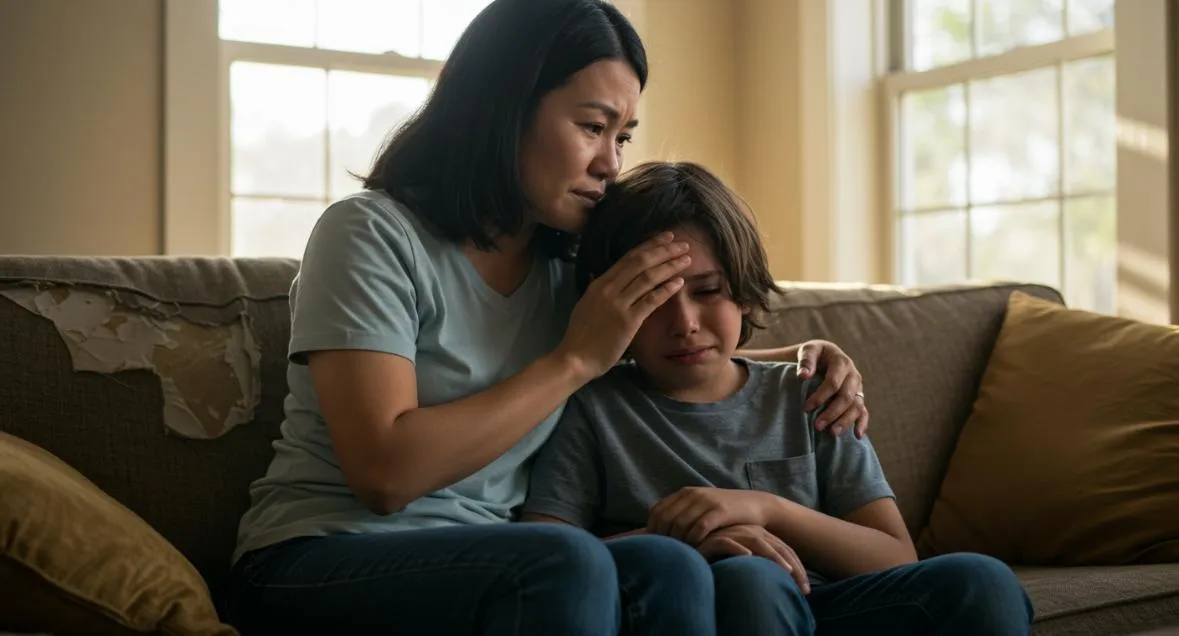
Every week, I sit with parents who are at breaking point.
Just a year ago, their child might have been managing school, maybe even enjoying parts of it.
But now? Just hearing the word “school” is enough to trigger panic.
They arrive in tears. Their child is frozen in the car. Everyone’s exhausted.
And while other children breeze through the gates, these parents are left trying to hold it together — while holding their child through a shutdown.
Now their daily struggle with school refusal includes:
Meltdowns before the school day even begins
Battles over clothing, noise, food, or leaving the house
A child who masks all day and crashes at home
Feeling completely alone while navigating judgement, pressure, and guilt
Constant fear of being reported, fined, or labelled a “bad parent”
They’re stuck in a cycle of trying and failing — and it just keeps repeating.
A brief moment of hope... followed by another morning that ends in overwhelm.
I see what most parents try (because it’s what school often tells them to do):
Reward charts (adds pressure - increases meltdowns)
Bribes (might work once or twice, then backfire)
Attendance threats (trigger panic and shutdown)
Forcing attendance (damages trust and worsens trauma)
Behaviour plans (miss the real issue and ignore nervous system needs)
At some point, every parent I work with hits the same wall.
They’re doing everything they’ve been told to do and still watching their child fall apart day after day.
They feel like they’re failing.
Like they’re the only ones this isn’t working for.
Like maybe they’ve run out of options.
And the worst part?
They’re carrying all this alone, while being told to “just get them in.”
Then one parent told me:
“Then I met Vicky, and everything changed.”
"We’d tried everything school suggested - reward charts, early starts, bribes, threats. Nothing worked. I was terrified I was making things worse. I didn’t even know occupational therapists could help with this… but within minutes of speaking to Vicky, something shifted.”
We didn’t talk about “behaviour” or “resilience.”
We talked about safety.
About sensory overload.
About what happens when a child’s nervous system is stuck in survival mode"
What I shared with this parent changed everything...
child wasn’t being defiant - their body was in survival mode.
Sensory triggers at school were overwhelming their system - and no one had noticed.
The more we pushed, the more their nervous system shut down.
Without felt safety, school would always feel impossible - no matter how many rewards we used.
But here’s what shocked me most:
No one had ever explained this before.
Not the school.
Not CAMHS.
Not even the paediatrician.
This parent had been following advice that unknowingly made things worse, because they didn’t have the right lens.
And they’re not alone.
“Vicky wasn’t just another professional. She was the first person who truly understood what my child needed and gave me tools that actually worked. For the first time, I didn’t feel judged. I felt supported. And my child? They finally started to feel safe again.”
That’s why I created this guide.
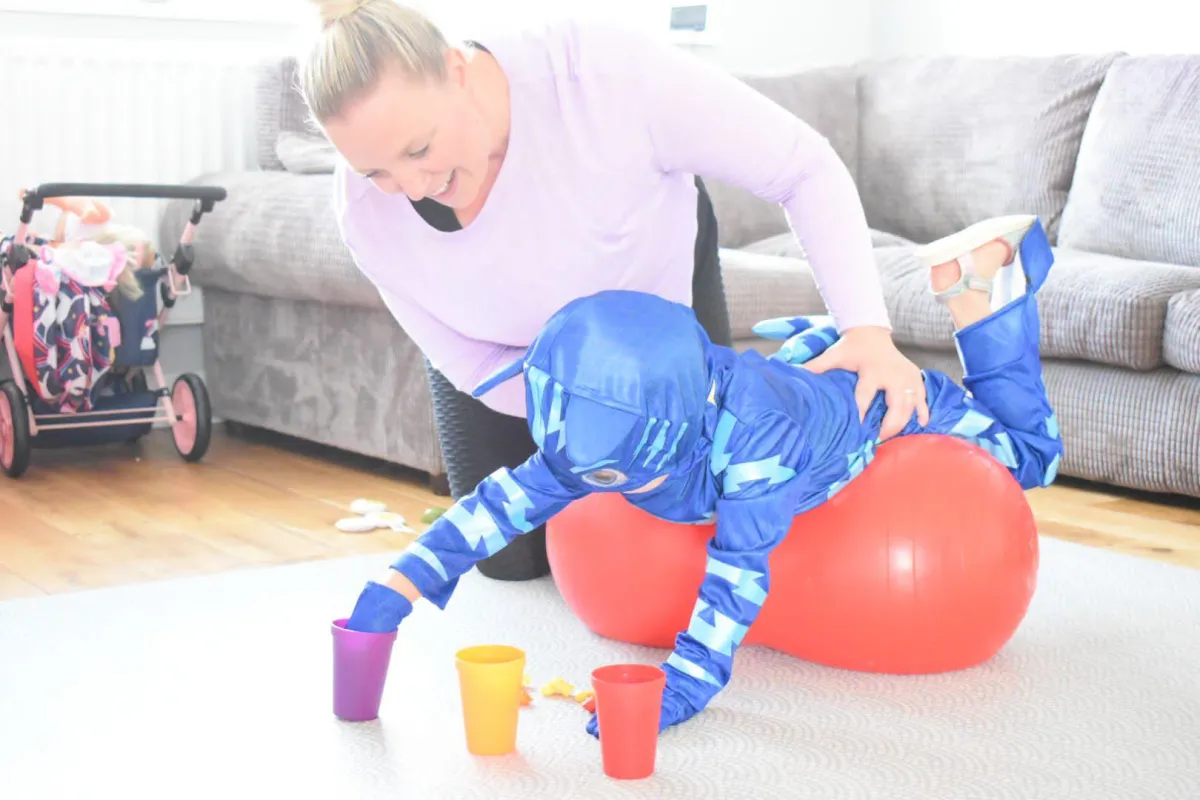
School Refusal Survival Guide
By focusing on the nervous system first, and addressing the sensory overload that often drives refusal, I was able to help families:
Dramatically reduce morning meltdowns and anxiety
Create safer, more predictable routines around school
Understand their child’s sensory profile, and adapt to meet it
Advocate effectively with school (even when staff didn’t “get it” at first)
Rebuild connection and calm at home - no matter the attendance outcome
After helping over 1,000 families facing school refusal and sensory distress, I’ve refined this process into a practical, parent-friendly method that anyone can follow — with or without access to an OT.
I've refined this system into a step-by-step method that anyone can use...even if nothing else has worked before.
But don’t take my word for it. Listen to these parents:
"For the first time in months, our mornings don't start with tears. i finally feel like I understand what my child needs and I'm not panicking about school everyday"
- Sarah, mum to 8yr old autistic child

"This guide explained things in a way no-one else ever has. I could finally show school what was going on, and they actually started listening" - Jake, dad to sensory seeking 10yr old

"We were in full shutdown mode. My daughter couldn't even talk about school. After using this guide, we built a plan together, and she's now attending school part-time without the daily worry and sleepless nights"
- Lorna, parent of PDA child

"I used to feel like I was failing her. Now I have language, tools and a plan that works. This guide gave us a way forward when we felt stuck and alone"
- Rachaele, parent of sensory sensitive child

THE [QUALITIES/SKILLS] THAT SEPARATE [SUCCESS STATE] FROM [FAILURE STATE]
The 4 Essential Shifts Every Parent Needs (That Traditional School Advice Doesn’t Provide)

Nervous System Awareness
Understand what’s really driving refusal and why safety matters more than attendance
When we view refusal as defiance, we push harder. That pushes your child further into shutdown.
But when we understand the nervous system, we can respond with calm, not force.
(Without this, we risk escalating trauma instead of building trust.)

Sensory Insight
Learn to spot the sensory triggers your child can’t always verbalise
Your child may not be able to say “the lights are too bright” or “my uniform feels scratchy” but their body shows it.
(Without this, we miss the hidden reasons school feels impossible.)

Connection Before Compliance
Build trust and
co-regulation before asking your child to ‘cope’ with school
A dysregulated child cannot learn, attend, or function.
(Without this, we create more resistance and emotional shutdown.)

Flexible, Individualised Planning
Ditch the one-size-fits-all advice and create a plan tailored to YOUR child’s needs
No reward chart or blanket policy can meet a nervous system that’s on high alert.
(Without this, even the most well-meaning strategies fall flat.)
INSTANT ACCESS - START MAKING SCHOOL FEEL SAFER TODAY
Here's Everything You Get With The School Refusal Survival Guide Today:

What's included:
The Complete School Refusal Survival Guide
19 chapters across 6 easy-to-follow sections that help you understand school refusal, calm the chaos, and create a personalised plan that actually works - without force, trauma, or judgement.
Plus These 5 Bonuses That Solve the Hardest Parts of School Refusal
"Morning Meltdown Rescue Kit" Get quick, sensory-based strategies to reduce morning chaos and ease transitions.
"Advocating With Confidence" Use ready-made scripts to finally get school to listen, without freezing up.
"Sensory Accommodations Cheat Sheet for Schools" A practical toolkit to explain and request essential supports.
"Understanding PDA & Demand Avoidance" Learn how demand sensitivity impacts your child and what actually helps.
"What If School Isn’t Possible Right Now?" A guide for when attendance just isn’t working and how to support recovery.
Normally: £97
Today: £27
The Transformation You Can Expect
Don’t let school refusal continue dominating your mornings, your energy, and your relationship with your child.
Your home life can feel calmer, more connected, and less reactive - you just need the right support system to make it happen.

Before the School Refusal Survival Guide:
Daily meltdowns just trying to get dressed
Panic and shutdown at the school gate
Endless googling for answers that don’t help
School telling you to “just get them in” with no real support
A child who masks all day and crashes at home
Constant guilt, confusion, and emotional exhaustion

After the School Refusal Survival Guide:
Calmer, more predictable mornings
A personalised plan that actually supports your child’s needs
Confidence to advocate clearly with school, even if they don’t understand yet
A deeper understanding of what’s driving your child’s refusal
Reduced anxiety for you and your child
More peace at home, even if full-time attendance isn’t yet the goal
YOUR PATH TO SAFER SCHOOL EXPERIENCES BEGINS HERE
The 5 Core Components That Transform Your School Refusal Struggles:
Each section is precisely designed to regulate your child’s nervous system, build safety, and reduce refusal through proven, trauma-informed, sensory-first strategies.
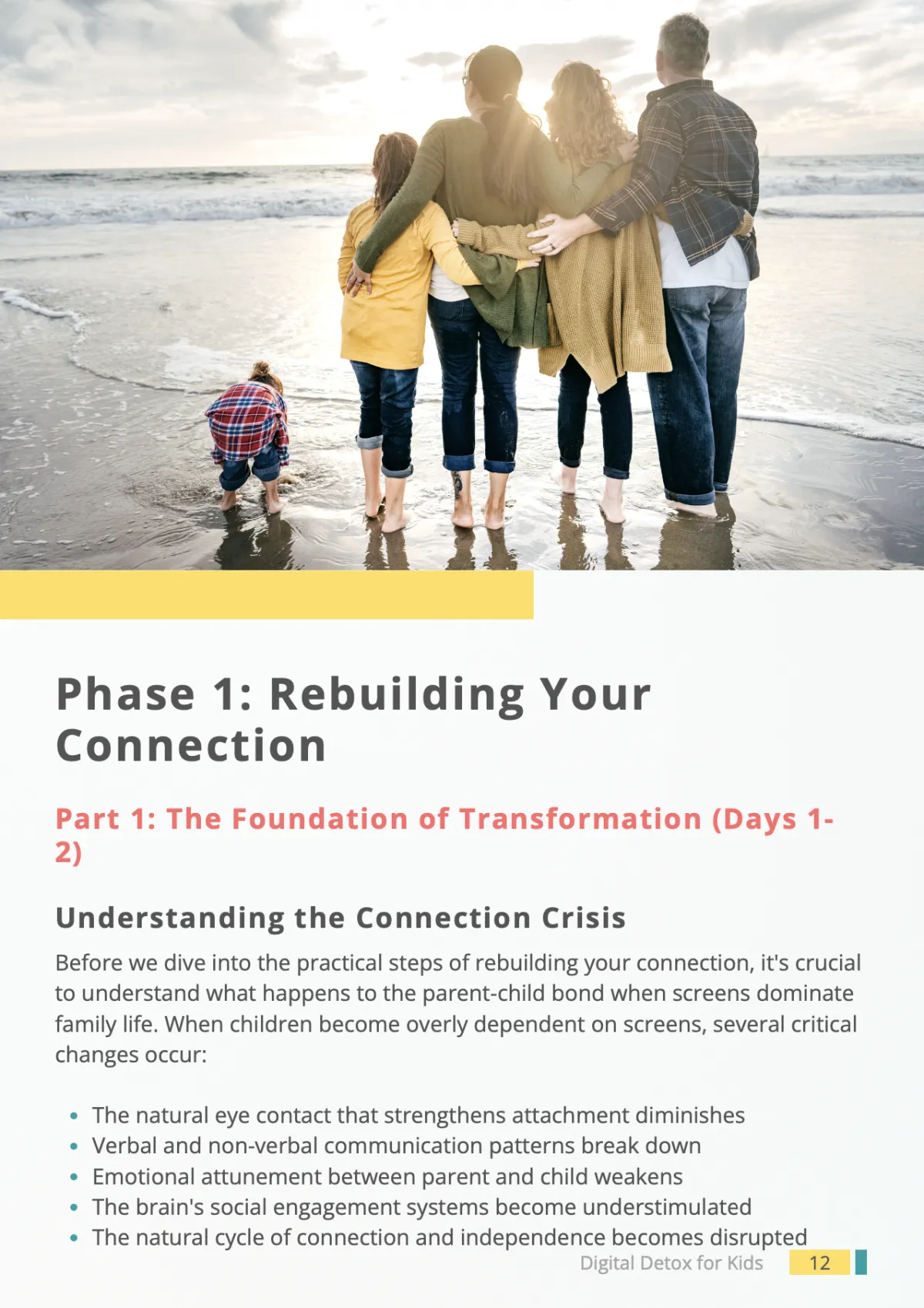
Component 1: Understanding What’s Really Going On
Feel less overwhelmed and more informed. This foundational section helps you reframe your child’s behaviour while shifting away from blame and towards compassion.
Learn why school refusal is often a nervous system response, not a choice
Explore how PDA, masking, and demand avoidance can make school feel unsafe
Shift from “How do I make them go?” to “What is their body telling us?”
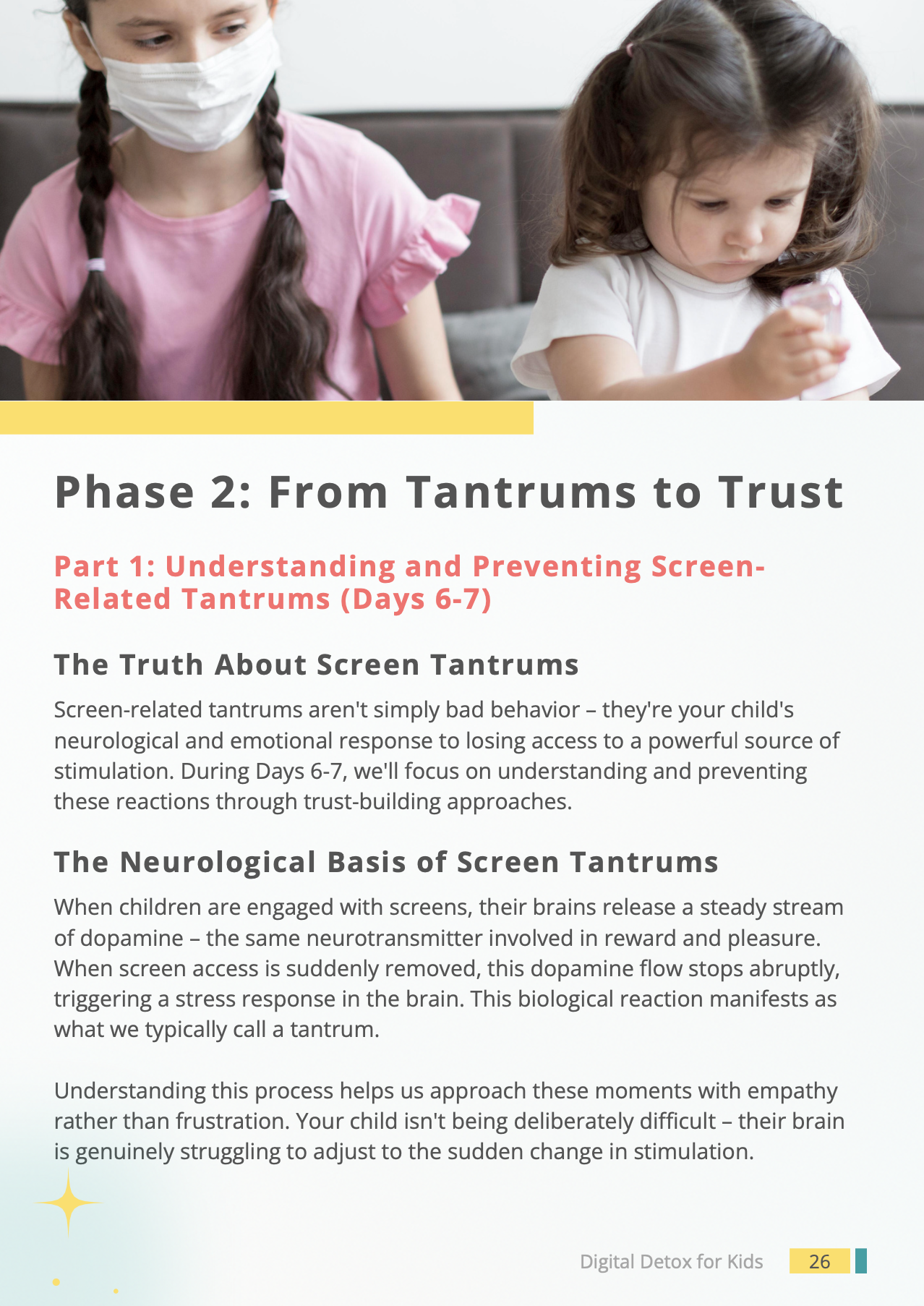
Component 2: Mapping Your Child’s Sensory Needs
Finally understand your child’s invisible stress points. This practical sensory mapping process helps you spot early signs of overload while personalising your support.
Use the Sensory Cups model to decode your child’s shutdowns
Identify over-responsive, under-responsive, and sensory-seeking patterns
Learn which environments dysregulate them, and what helps instead
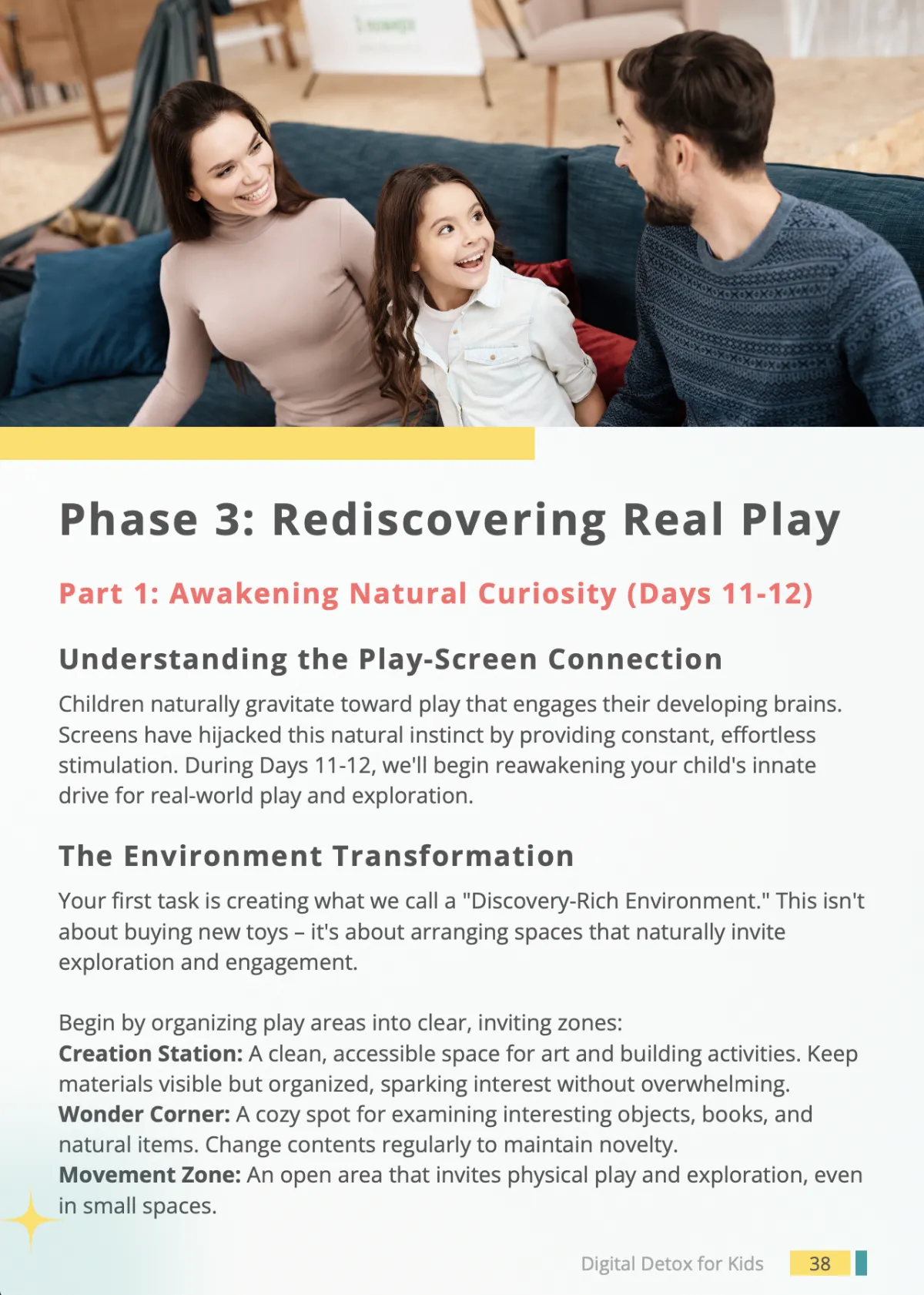
Component 3: Making School Feel Safer
Reduce meltdowns and increase felt safety . This real-life planning section helps you adapt routines and environments so your child can feel safe enough to try again.
Calmer morning strategies using sensory input and predictability
Create a sensory-friendly school arrival and transition routine
Build a “soft landing” school day plan that actually supports regulation
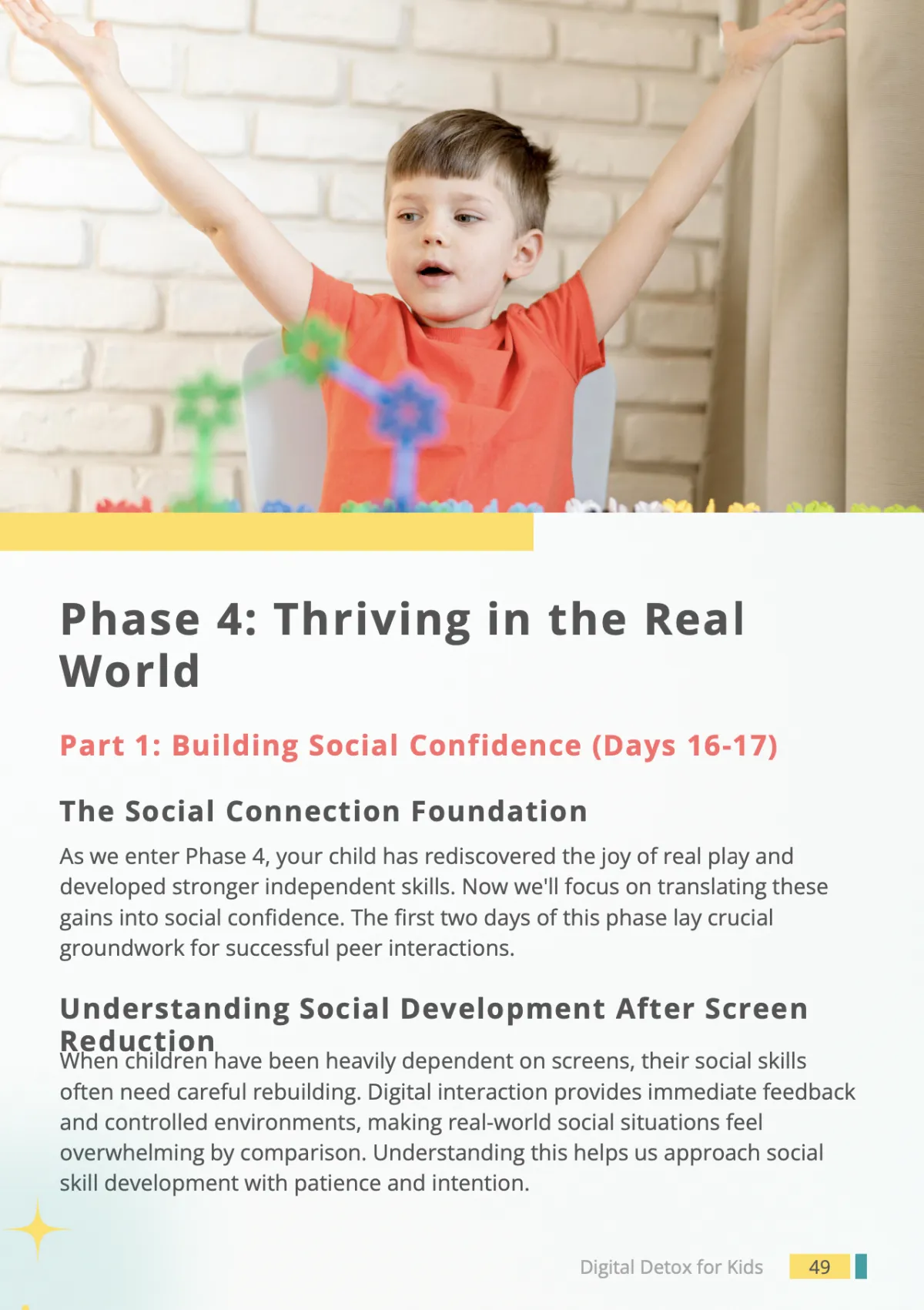
Component 4: When School Isn’t Possible Right Now
Release guilt and find clarity. This gentle approach helps you support recovery and connection, even if your child can’t attend school at all right now.
Understand when a pause is therapeutic, not a failure
Create a nervous system recovery plan at home
Explore alternatives like flexi-schooling or EOTAS without shame
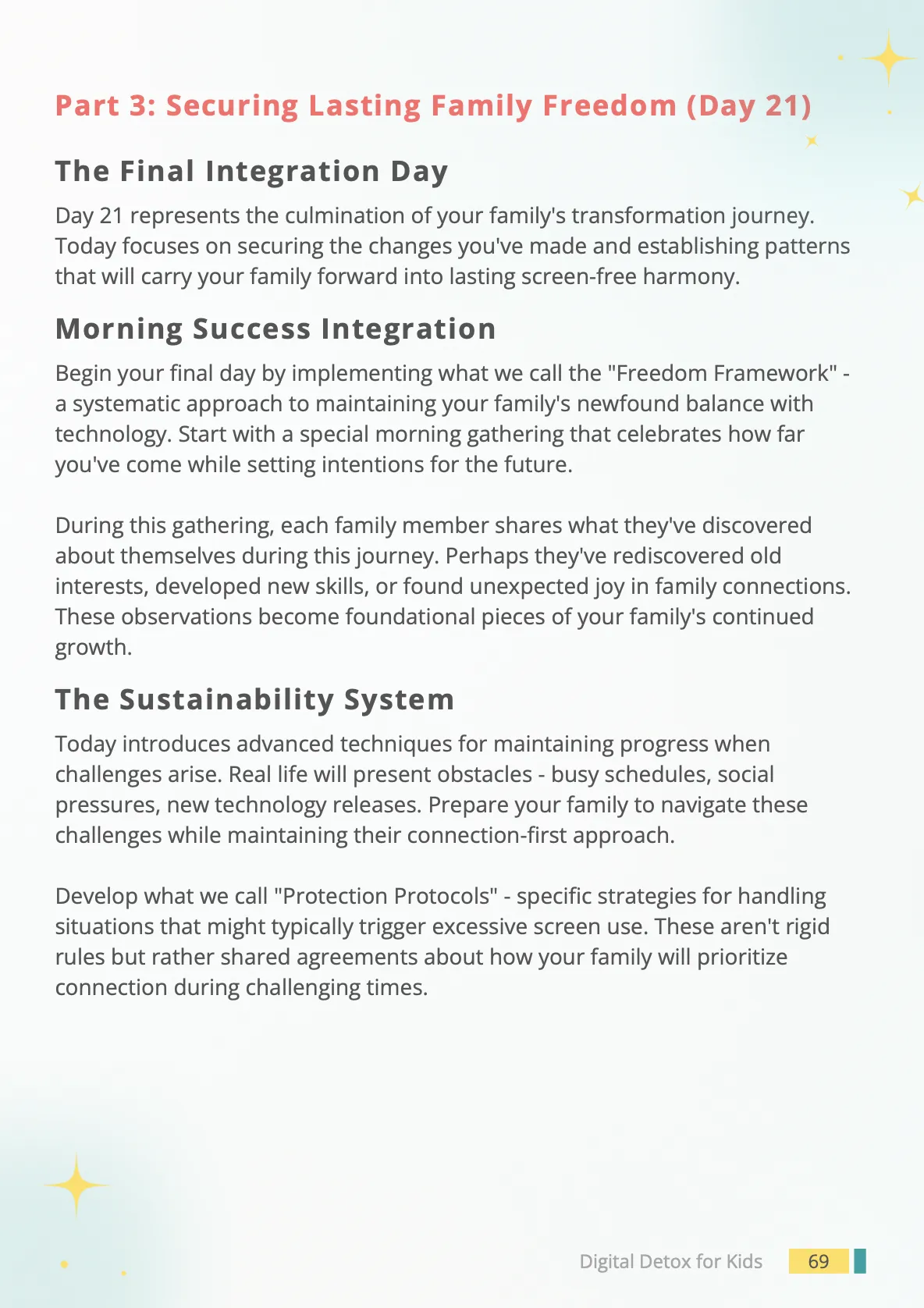
Component 5: Advocating With Confidence
Stop second-guessing yourself in meetings. This advocacy toolkit helps you speak clearly to schools, even when they don’t understand sensory needs yet.
Use pre-written scripts to request accommodations and reframe refusal
Share sensory support plans that schools can actually implement
Build collaborative communication while protecting your child’s wellbeing

You Don’t Have to Keep Doing This Alone
Get the School Refusal Survival Guide Now
While other parents are still stuck in daily meltdowns, school pressure, and constant overwhelm…
You’ll be confidently supporting your child with a plan that’s grounded in nervous system safety, not force.
You’ll have language that schools listen to.
Strategies that actually reduce shutdowns.
And a calmer, more connected home - no matter where your child is on their school journey.
About the Author
Vicky Robinson is a UK-based Specialist Paediatric Occupational Therapist with over 20 years of experience supporting autistic and sensory-sensitive children. She specialises in helping families navigate school refusal, sensory regulation challenges, and shutdowns with a neuro-affirming, trauma-informed approach. Vicky has worked with thousands of families across homes, clinics, and schools — translating complex sensory needs into practical, compassionate strategies that work in real life. Her mission is simple: to help parents feel confident, connected, and supported as they advocate for their child’s needs.
Frequently Asked Questions
Question 1: Will this help if my child doesn’t have a diagnosis?
Yes. This guide is designed to support any child who is struggling with school-related anxiety, shutdowns, or sensory overwhelm whether or not they have a formal diagnosis. The strategies are adaptable and based on your child’s needs, not labels.
Question 2: What if my child isn’t in school at all right now?
That’s okay. This guide includes support for families who are flexi-schooling, pursuing alternative education, or pausing school entirely. You’ll find strategies to support recovery, reduce pressure, and plan your next steps with confidence.
Question 3: Do I need to show this to school staff?
You can if you want to, but it’s entirely up to you. The guide includes phrases and templates you can use when you’re ready to advocate, but it's also designed to give you clarity and confidence even if school isn't ready to listen (yet).
Question 4: Is this just theory, or does it include practical tools?
It’s packed with practical tools. You’ll get sensory mapping templates, scripts, accommodation cheat sheets, real-life examples, and a step-by-step framework you can personalise to your child. Plus 5 bonus resources to make implementation even easier.
COPYRIGHT 2025 | SENSORY SOLUTIONS | PRIVACY POLICY | TERMS & CONDITIONS
DISCLAIMER: This guide is designed for educational purposes only and is not a substitute for professional medical, psychological, educational, or therapeutic advice. While the strategies are based on evidence-informed occupational therapy principles and have supported many families, every child and situation is unique. Results may vary depending on your child’s needs, environment, and the level of support available. Please consult your healthcare provider or relevant professional team if you have specific concerns.
NOT FACEBOOK: This site is not a part of the Facebook™ website or Facebook Inc. Additionally, This site is NOT endorsed by Facebook™ in any way. FACEBOOK is a trademark of FACEBOOK, Inc.
Nothing in this guide, on this website, or in any associated materials constitutes medical, legal, or psychological advice. We do not guarantee outcomes- the content is intended to provide practical guidance and support rooted in professional experience. You are responsible for how you apply this information and for making decisions in the best interest of your family.
This site is not a part of the Facebook website or Facebook Inc. Additionally, This site is NOT endorsed by Facebook in any way. FACEBOOK is a trademark of FACEBOOK, Inc.